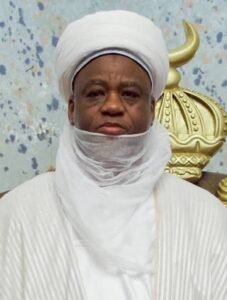Rabbita at a Crossroads: The Future of Yoruba Muslim Leadership Under a Hijacked Legacy

By Mutiu Olawuyi
For decades, the League of Imams and Alfas in Yoruba land—popularly known as Rabbita—stood as a symbol of unity, scholarship, and moral authority. It was founded by a circle of Yoruba scholars and championed by the incomparable Sheikh Adam Abdullahi Al-Ilory, whose brilliance transformed Markaz Agege into a citadel of learning.
Undoubtedly, Rabbita was never meant to be a personal estate; it was conceived as a unifying platform for all Yoruba Muslim scholars regardless of school, city, or theological orientation. Today, however, that vision is fading under a troubling shadow—one cast not by external threats, but by the very custodian of Sheikh Adam’s lineage.
Mudeerul-Markaz, Sheikh Habeebullahi Adam Abdullahi Al-Ilory, has increasingly positioned himself as the uncontested leader of Rabbita, not through consensus or scholarship, but through inherited prestige, political maneuvering, and a growing web of loyalists controlling the association’s key positions and communication channels. What once functioned as a council of scholars now often feels like a court orbiting a single throne.
The problem is not lineage—Islam respects noble ancestry. The problem is entitlement, especially when leadership is claimed as a birthright rather than earned through humility and scholarship. Sheikh Habeeb’s style of governance is marked by unilateral appointments, controversial declarations, and a disregard for collective leadership structures. His unilateral announcement of a “Mufti of Yoruba Land,” and his decision to independently declare Ramadan start and end dates against the national leadership of the Sultan of Sokoto, reflect a deeper ambition: to stand as the de facto supreme authority over Yoruba Muslims.
Such actions not only violate the spirit of shūrā (consultation), but actively undermine the unity of the Ummah. The Prophet ﷺ emphasized that unity in worship is a protection for the community. When a single leader imposes decisions that fragment congregations from Ilorin to Lagos, the damage reaches far beyond theological debate—it becomes a societal fracture.
Equally troubling is the pattern of antagonism toward scholars who dare to shine or differ. From Ilorin’s Mufti Sheikh Sulaiman Faruq Onikijipa to Dr. Abdul-majid Imran Eleha, from Professors Abdur-Razak Alaro and Khidiri Abdulbaaqi to other respected figures in Ibadan, Iwo, Ogbomoso, and even Ilorin (his hometown), the Mudeer’s public criticisms are becoming synonymous with ego-driven rivalry. Even some of his father’s contemporaries and former teachers at Markaz have not been spared. A scholar who cannot tolerate the excellence of others risks turning leadership into domination rather than service.
This insecurity fuels an alarming ideological inconsistency. For years, Sheikh Habeeb opposed certain Sufi circles. But when Sunni scholars refuted his theological claims, he sought refuge among the Sufis—only to later open his doors to Shi’a apologists for political leverage. This is not theological depth; it is sectarian opportunism, and it is reopening old wounds that Islam in Yoruba land historically managed with maturity.
Most dangerous, however, is the way Sheikh Habeeb invokes his father’s name as a shield against criticism. Almost every dissenting voice is accused of “attacking Sheikh Adam,” even when the issue is contemporary misconduct. This emotional blackmail exploits the community’s deep reverence for Sheikh Adam—one of West Africa’s greatest scholars—and weaponizes his legacy for personal consolidation of power. In doing so, the son unintentionally erodes the very name he seeks to protect.
Sadly, Rabbita’s future now stands at a crossroads. If the current trajectory continues, fragmentation is inevitable. Muslims in Yoruba land may witness the rise of rival councils, the erosion of collective respect, and the collapse of an institution that once unified an entire region.
However, hope remains. Senior scholars across sects and cities in Yoruba land can still reclaim Rabbita through constitutional reform, transparent leadership, and a recommitment to the values that made Islam in Yoruba land a symbol or flagbearer of moderation.
Indeed, the legacy of Sheikh Adam was one of unity, intellectual openness, and service—not arrogance, not division, and certainly not hereditary absolutism. If Rabbita is to survive, its leadership must return to humility, consultation, and collective wisdom.
Islam in Yoruba land deserves better than a dynasty of ego. It deserves a future rooted in justice, knowledge, and brotherhood—just as Sheikh Adam intended.








